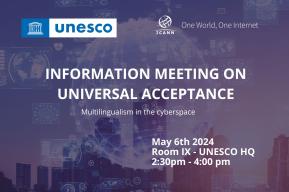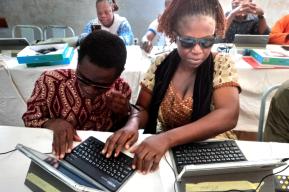News
Open Solutions: A lever to achieve access to information and knowledge

We live in a world of connectivity. It is possible to connect published knowledge for the universal benefit. It is happening!
Three-pronged approach to achieving access to information and knowledge for IFLA
The International Federation of Library Associations and Institutions (IFLA) emphasized the importance of open solutions in providing access to information and education in a digitized world. Libraries aim to transition from mere accessibility to actual usage of knowledge. This involves the establishment of operation platforms for knowledge curation and creation, adherence to equity and ethics, and collaboration with policymakers and stakeholders to advocate for open solutions. Libraries play a crucial role in ensuring the effective implementation of open solutions and addressing information inequality and inequity.
As we face a situation of moving from scarcity to abundance, this has implied a change in how libraries operate – certainly no longer gatekeepers, more gate openers and guides, helping people to make the most of what is there and working to tackle information inequality and inequity.
Openness and transparency to maximize access to knowledge
Alex Gakuru, a leading advocate for openness and transparency, highlighted the need for the Global South to not only consume but also produce knowledge through open educational content. Challenges faced by the Global South include a lack of awareness about copyright and the benefits of open licensing, the need for capacity building in creating Open Educational Resources (OERs), and the absence of supportive policies. Initiatives by UNESCO, such as the "oerisation" process at the University of Nairobi in Kenya, have demonstrated the positive impact of capacity development in promoting the democratization of knowledge and universal access to education.
WIPO highlights importance of Open Access and Creative Commons licenses
The World Intellectual Property Organization (WIPO) emphasized the advantages of Open Access and Creative Commons licenses in promoting access to knowledge and information. WIPO’s shift toward these licenses and initiatives like the WIPO Research4Life Project exemplify their commitment to openness and collaboration in research and innovation.
Policies to pave Openness: A global review
Dr Ard Prasad, an academic in Library and Information Science, emphasized the need to incorporate openness in policy frameworks. He highlighted the existence of 858 Open Access Policies in 191 countries, as well as the Global Open Access Portal (GOAP), which provides an inventory of these policies along with repositories, journals, and data repositories. GOAP also offers templates and checklists for model policies related to openness at different levels.
Open Access is necessary for future of knowledge sharing
Ms Arianna Becerril Garcia, a professor and executive director of Redalyc, stressed the importance of open access to scientific information in democratizing science. She advocated for academic ownership of scholarly communication processes and emphasized the need for South-South collaboration in knowledge sharing through open licensing. Ms. Garcia also highlighted the importance of adopting non-commercial workflows in journal production processes.
The future of knowledge sharing looks promising with the use of open solutions. Establishing open solution policies and building capacity to create and utilize open solutions will ensure that knowledge remains a global public good accessible to everyone.
The future will be open but open for who, owned by who, controlled by who and serving whose interests? Those who fail to learn from history are condemned to repeat it.
OER Dynamic Coalition
The OER Dynamic Coalition was formed following the adoption of the UNESCO OER Recommendation by Member States at the UNESCO General Conference in November 2019. Its objective is to assist governments in implementing the recommendation by promoting and strengthening international and regional cooperation among stakeholders in key areas outlined in the recommendation.







